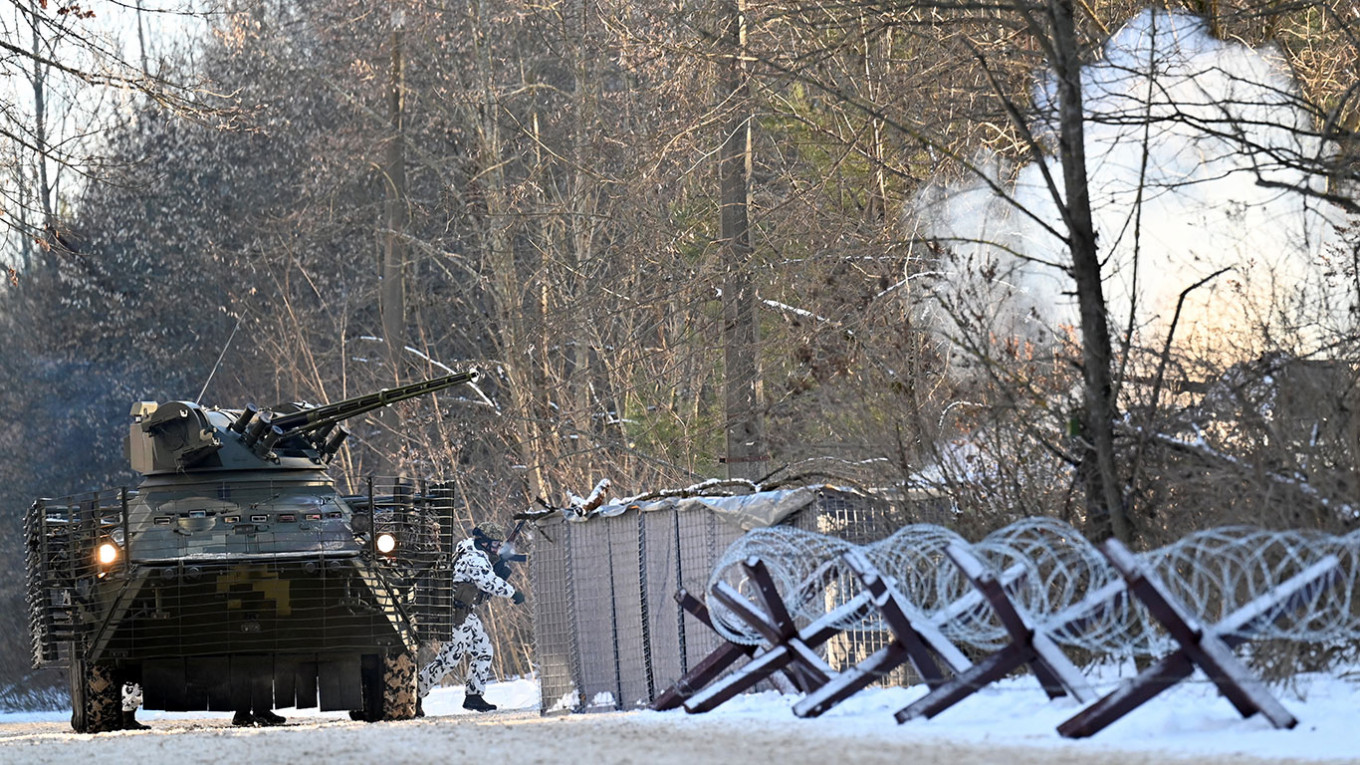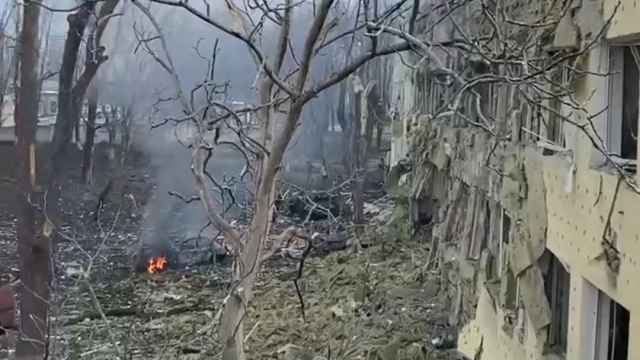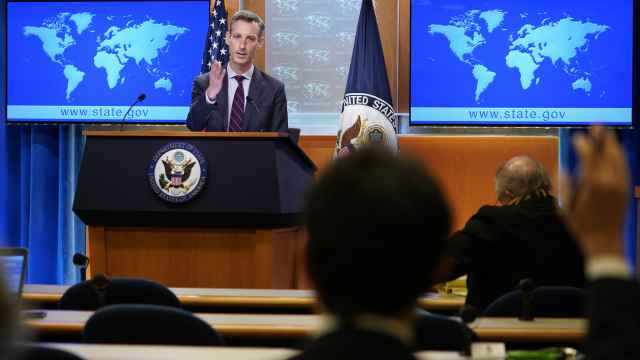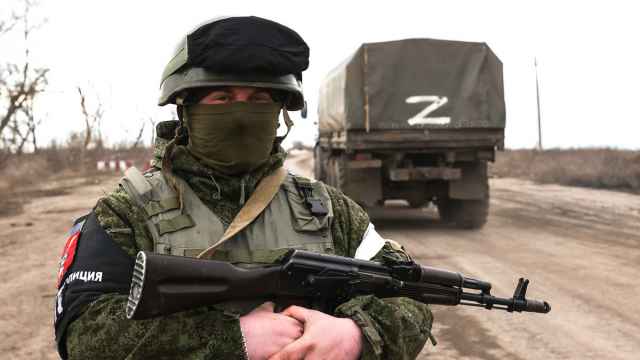Renewed war in Ukraine is no one’s preferred policy outcome. However, the Kremlin is a willing aggressor, given the geopolitical and domestic successes President Vladimir Putin has wrought from deploying troops in Ukraine, Georgia, and Syria.
The West is not willing to put up the guarantees that would indelibly deter Russia from aggression. Only NATO membership would likely suffice, hence Moscow’s use of it as a MacGuffin to push Ukraine to the top of the U.S. agenda.
But the Biden administration has not been unwilling to engage in this escalatory dance, most recently sending 3,000 troops to Eastern Europe where they can potentially have front row seats for a war in Ukraine they will do nothing to affect.
The U.S. and Russia are both using Ukraine and the risk of war to their advantage. For Washington, the threat of renewed war has enabled wide-ranging discussions with Moscow on a new security settlement, though Washington’s political environment had been outright hostile to even raising such ideas just months ago.
It behooves both Washington and Moscow to do their utmost to seize the opportunity from the crisis they have generated. There may already be reason for optimism, given the spate of U.S.-Russian diplomatic engagement witnessed over the last two months, in stark contrast to 2013-2014.
However, in order for these to be successful, the two sides must recognize that they have been employing wholly different frames of reference for the conflict. The Kremlin sees the White House’s as rooted in a post-Cold War triumphalism abusing its guiding hand over international order to bolster its position, while the White House sees the Kremlin’s as ensconced in a revisionist revanchism seeking to undermine the institutional order of international affairs.
That the Kremlin is unhappy with the way the international order in its near abroad is structured is no revelation. Putin has long made little secret of his desire to re-establish Russia’s place in the region, and wider world, famously labelling the Soviet collapse a tragedy. But he is not alone among Russians as seeing a special historical bond with Ukraine — the late novelist Alexander Solzhenitsyn, so beloved in the West for his anti-Communism, long bellowed the same sentiment.
Neither Putin nor Solzhenitsyn fulminations bear any semblance to present reality in Ukraine, of course, where the Kremlin’s aggression has increasingly turned the population toward the U.S. and West in recent years. But the West must appreciate where the Kremlin’s view emanates from, and its understanding of history, if it is to have any hope that the current talks will prove fruitful.
Another important factor in this is Putin’s assertion after Crimea’s 2014 annexation that post-revolutionary Ukraine was a “new state” with which its previous agreements such as the Budapest Memorandum no longer held. This is of course an extreme affront to Western ideas on international law and the succession of states that on first view will support Western criticisms of the Kremlin’s assault on international institutions.
But it is not so shocking as a negotiating position for Russia, which less than 25 years ago had to negotiate with the United States over its status as the Soviet successor state, with its permanent United Nations Security Council seat in the balance. The failure of the end of the Cold War to improve Russian-Western relations over the long term also highlights Moscow’s failure to understand Washington.
The George H.W. Bush-administration feared more from Soviet collapse than it did from a rump Soviet Union. This was not necessarily popular. Bush was famously lambasted in the New York Times for his August 1991 so-called ‘Chicken Kiev’ speech over his trepidation regarding Ukraine’s attempts to divorce itself from the Soviet Union.
However, Bush’s speech did little to calm fears among reactionary forces in the Soviet establishment. If anything, the address of a U.S. president to a sub-national legislature did the opposite. Then-KGB chief Vladimir Kryuchkov noted the agency was full of fear that Western leaders expected a Soviet collapse. Just 18 days after Bush’s speech, Kryuchkov would join the failed August coup attempt against Gorbachev.
An alternative history may well have been possible. Yeltsin — and even Putin, briefly — flirted with pursuing NATO membership. But Moscow did not see NATO as Washington did and the U.S. was never willing to offer a unilateral concession to Moscow that would have been necessary to build lasting trust.
Washington need not abandon its sanctions threats in response to a Russian response, in fact it is central to ensuring the success of any such strategy.
However, the U.S. should offer a carrot that demonstrates an appreciation for Russia’s view of regional and institutional power. Offering Moscow a veto on Ukraine’s security arrangements is rightly excluded, but failure to recognize that Russia has a different view of the regional settlement rights would be irresponsible too.
Putin has already hinted he can acknowledge the West's views, even if most Western commentators failed to notice.
Peace in Ukraine and stability in the Russian “near abroad” would be in the U.S.’ self interest, arguably more so than in the Bush I era, given the rise of China and Europe’s internal challenges. It has the added benefit of being in Ukrainians’ interests too.
Acknowledgement of Russia’s view does not equal acquiescence, but it could create the trust necessary for lasting peace.
A Message from The Moscow Times:
Dear readers,
We are facing unprecedented challenges. Russia's Prosecutor General's Office has designated The Moscow Times as an "undesirable" organization, criminalizing our work and putting our staff at risk of prosecution. This follows our earlier unjust labeling as a "foreign agent."
These actions are direct attempts to silence independent journalism in Russia. The authorities claim our work "discredits the decisions of the Russian leadership." We see things differently: we strive to provide accurate, unbiased reporting on Russia.
We, the journalists of The Moscow Times, refuse to be silenced. But to continue our work, we need your help.
Your support, no matter how small, makes a world of difference. If you can, please support us monthly starting from just $2. It's quick to set up, and every contribution makes a significant impact.
By supporting The Moscow Times, you're defending open, independent journalism in the face of repression. Thank you for standing with us.
Remind me later.








